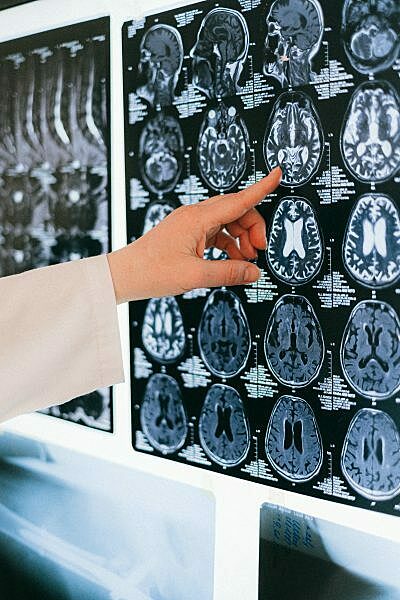I should start by saying that this is good news. The approval of the first new therapy for Alzheimer’s disease in almost two decades, and the first treatment directed at one of its underlying pathophysiologies, is a critical milestone. The clinical trials showed a reduction in Aβ plaques leading to an expectation of a reduction in clinical decline.
I am optimistic because with this advance there will be the opportunity to generate the critical Phase 4 efficacy data required to convert the accelerated approval into a full approval. And I’m also optimistic because clinical proof of the value of this plaque-reducing treatment, no matter how expensive, will open the door to further discovery and innovation within the biotech and pharma sectors, which should eventually provide what we are all seeking: an effective and affordable treatment for Alzheimer’s.
However, there are a number of significant barriers to the widespread use of aducanumab in Australia. The Australian government’s Therapeutic Goods Administration fulfills a similar role to the FDA and will review Biogen’s application, which is reported to be currently under review.
Accelerated approval in the U.S. relies on the use of a surrogate marker such as Aβ detected in the brain by PET scans. Whereas the FDA has approved several Aβ PET scan tracers, including florbetapir, florbetaben, and flutemetamol, to date none have been approved in Australia. So there will be parallel challenges in advancing clinical PET imaging for Alzheimer’s, which to date has only been used in research.
Australia has a universal health care system. The Pharmaceutical Benefits Scheme (PBS) is an Australian government program that subsidises medicines to make them more affordable, reducing the cost of life-saving drugs to just $AUD41.30 ($USD31) per prescription. However, the threshold for PBS listing is both clinical efficacy and value for money. New drugs typically receive marketing approval well in advance of PBS approval. Therefore, the first doses of aducanumab, once approved, are likely to be expensive, which will limit use.
Which patients might be eligible? Those with mild, moderate, or severe Alzheimer’s? Each presents a different clinical challenge but if the Aβ biomarker is the key, then PET scans (likely without the benefit of subsidized tracers) will be essential. It is obvious that there is a challenge of drug, biomarker, and clinical workforce skilled in these challenges.
Perhaps the optimal patients might be those with the presence of Aβ plaques, but before the diagnosis of Alzheimer’s. The Dominantly Inherited Alzheimer Network1 and other genetic “at risk” studies have used this biomarker, but identification of Aβ plaques in the presymptomatic population at large will present an almost impossible challenge until cheaper and non-invasive biomarker tests (possibly blood tests) could provide an initial screen.
There are some very significant hurdles before patients in Australia will be able to widely access aducanumab, including TGA approval, biomarker (PET?) screening, patient selection, and clinical workforce skills. These regulatory, marketing and clinical hurdles could easily make one a pessimist. But the pressing issues of the impact of dementia, which is the second leading cause of death in Australia, mean that we have to use this new opportunity to advance our understanding of disease and of its treatment, and bring new hope to those living with Alzheimer’s.
1I am a site investigator in the Dominantly Inherited Alzheimer Network.
Please note, this comment was provided to Alzforum in response to this article: https://www.alzforum.org/news/research-news/little-data-go-clinicians-are-left-figure-out-way-forward#comment-41446




